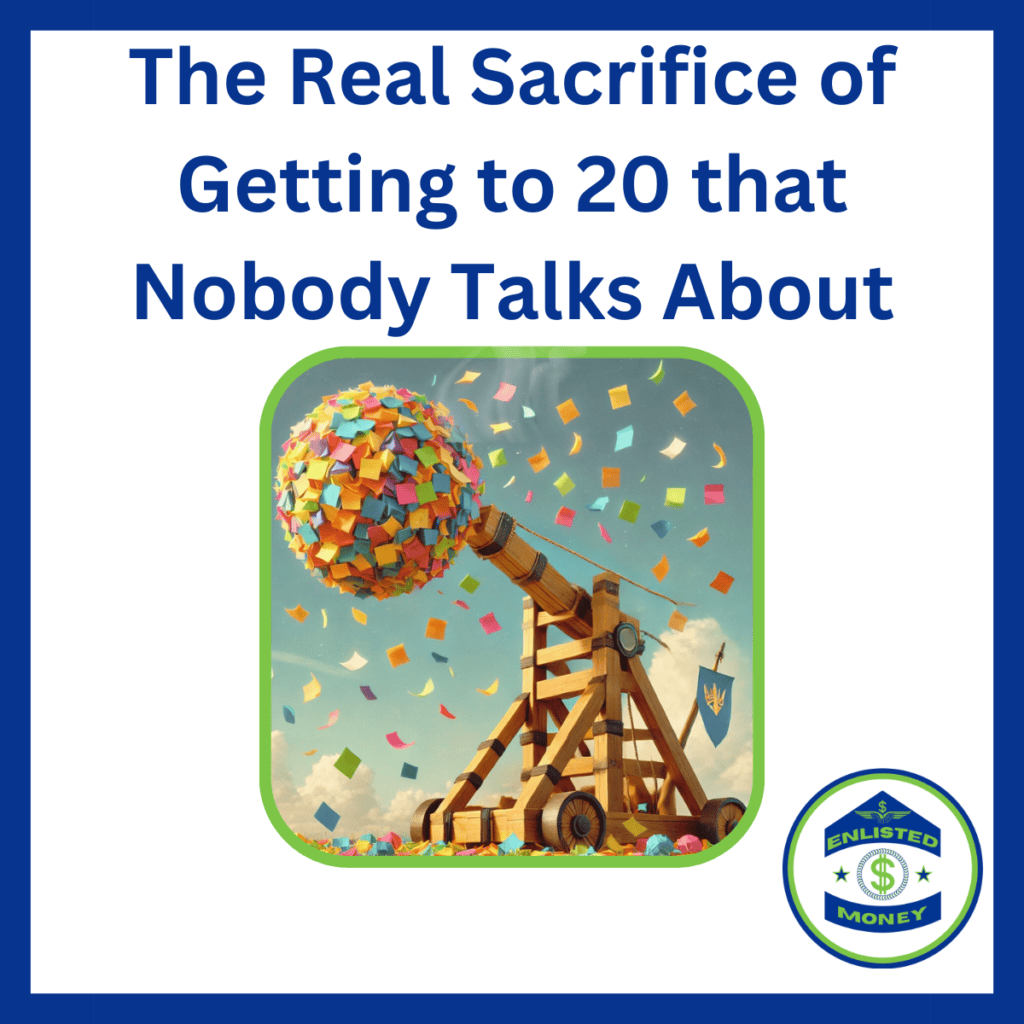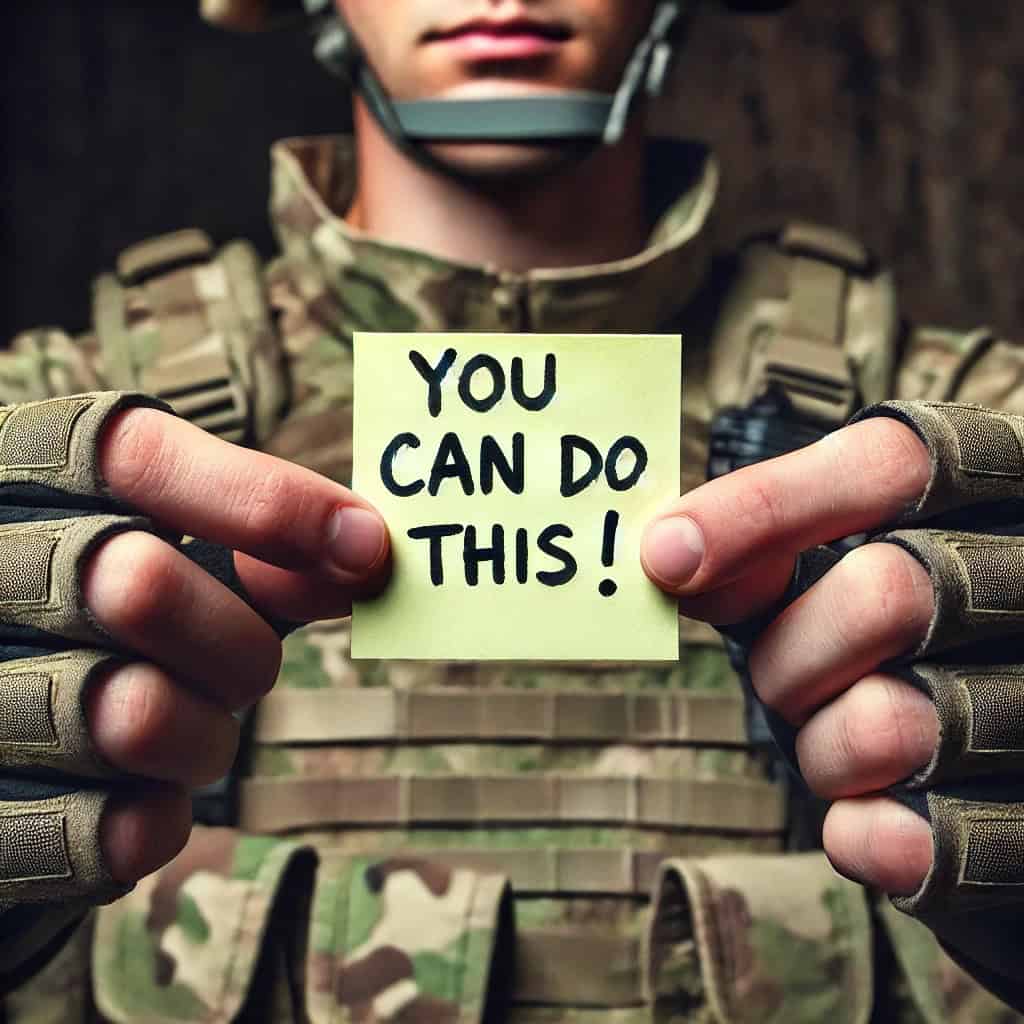
As I near retirement, it doesn’t feel real. Increasingly, I realize I don’t even recognize or know who I really am anymore. A weird phenomenon happens when you attach every part of your being and shape your whole life around your military service.
There’s a particularly cruel type of sacrifice that happens that people don’t talk about—the slow, forced dissociation of self. The more I think about it, I feel this is the most prominent and cruel sacrifice service members make to serve until retirement.
For me, this has looked like suppressing my personality and potential friendships because of rank or position. There’s a persistent anxiety from being under constant scrutiny or perceived scrutiny. This is uncomfortable at best and excruciating at worst.
The Initial Dehumanization Process
Just like the attempts to reform prisoners, Soldiers and other service members undergo an initial phase of training. The process of shedding your identity and rebuilding a new one is called dehumanization for a reason. You are literally altering how you perceive yourself. You are no longer human, you’re now a Soldier (or Marine, Sailor, Airman, Guardian, Coast Guardsman, etc.).
This transformation is embraced and exalted. We even sing fun cadence to make light of these changes. I used to give speeches and explain that “we’re all born human, but then we become something better – we become Soldiers.” These transformations continue throughout the life of a service member.
The Loss of Self Continues
As you become an NCO, leaders are expected to act differently. You’re increasingly in the spotlight and expected to model good, even perfect behavior “at all times,” as The Creed of the Noncommissioned Officer states.
As your responsibilities increase, so do the pressures and dangers. If you push people too hard, they’ll push back. Sometimes with words, but increasingly often, it’s with an investigation from somewhere.
A Not So Gradual Shift of the 51% Vote
Once upon a time, when disagreements happened, or something went wrong, the leader got 51% of the vote. Actually, they used to get all the votes unless it was blatantly wrong. What I mean is this: the accomplishment of the mission was on the leader in charge and if they made a mistake, they didn’t get crucified. It was also understood that the leader always got some privilege and leeway when you were the subordinate.
Around 2010-2012, I noticed a major shift. I’m not sure what to call it other than a sanitization of culture. Everything we used to embrace as part of our culture was washed away. There were many policy shifts, new uniforms (again!), and a vast expansion of what was considered “unprofessional,” at least in the Army.
There was a huge push against “smoking” anyone for anything. Cursing was now frowned upon or outright banned from our vocabulary. Promotion ceremonies had nothing but a certificate and a smile – not even a water cooler and pushups to celebrate. Any act outside of a handshake was now “hazing.”
Sure, there were individuals that took things too far. However, those were few and far between. Physical harm isn’t okay, but some chiding and innocent horseplay was what bonded us together.
The Rise of Weaponizing Support Services
During this timeframe, there was an increasing rise in what I’d call the “weaponization” of support services like SHARP, EO, IG, etc. The leader didn’t even have to do anything wrong for their reputation and career to be on the line. It was a guilty until proven innocent environment. These situations made the decision on who got the 51% for what was “reasonable” much more important.
To be clear, most complaints are probably legitimate. However, in our zero-defect environment we’ve shifted to, even one comment with unintended consequences can ruin you. So, what’s a “good” and “professional” leader to do? Sanitize everything. Stick to the script.
Sanitizing Myself to Become the Leader the Army Wanted
In fairness, as I grew up in the Army, I embraced my role as a leader and shifted as well. I often drew hard lines between those who I hung out with. I’ve erased cursing from my vocabulary (at least in public). I can’t even remember the last time I “dropped” someone. Instead, I took to the keyboard writing counseling statements, documenting things with memorandums for record, and sending detailed emails.
I became exactly the leader the Army told me to be—exactly the leader it said it wanted. I’ve pursued excellence and competed in best NCO competitions (and won). I was selected for the prestigious Sergeant Audie Murphy Club. By all accounts, I went all in. I did my very best and still do.
However, I didn’t realize how much of myself I was giving up, or the toll suppressing who I really was would have on me. I know I’m not the only one. Many of us complain about being unable to hang out with anyone anymore. We hold unit events that are just a charade. Interpersonal relationships seem hollow and forced.
Many of us who’ve lived through this transition talk about the Army like we’ve already left. Younger Soldiers don’t seem to feel any attachment to the Army. It’s more or less a job meant to extract value for them. The “what’s in it for me” mentality is at the forefront of every conversation. Making uniform corrections will get you labeled as “toxic” or get you labeled as a “regulation nazi” (yes, this literally happened to me).
No Rest for the Wicked
What makes things worse is that you’re powerless to change anything. I’ve felt stuck for a long time. This is why I’m so adamant about helping young service members get their finances straight early in their careers. I want them to feel empowered to leave service when they’re ready.
I’m trying to help the “PFC Lovingier of today” so they don’t have to live someone else’s life.
I’ve always done my best and made the decisions my wife and I thought were best for my family. It comes at the cost of living a life that’s true to myself. I’ve got mountains of walled-up creativity inside me.
Winding Up
I keep imagining my whole life as a giant trebuchet or catapult slowly being wound up. Except it was wound up and ready years ago. The rope pulled tighter and tighter, and then we added more ropes and chains to hold back the payload of life. Slowly, the frame started to splinter and crack under the pressure. It wasn’t meant to be held back and static forever.
This tension occasionally leaks out in the form of outbursts at home, depression, and even the occasional anxiety attack (or at least I think that’s what those are). I’ve never felt safe addressing these things because I don’t want to explain any of this to people at work. I also don’t want to be medicated – I want to be alive. There’s also the risk of getting medically separated and ruining my chances of making it to retirement – which is why I was staying in service in the first place. It’s a weird catch-22.
However, I’ve been in service for over 19 years now, so I’m at the point where it’s pretty safe to get some of these things taken care of. They couldn’t process a med board that quickly anyway. It takes months to even get an appointment where I’m at. Who knows what I’ll find, but I’m slowly considering who I am and who I want to be.
Building a Supportive Community Outside the Military
The only thing that’s saved me the last few years is my community of friends, mentors, and supporters on the outside. The military personal finance community has been a literal Godsend to me. Creating an identity outside of my day job when I’m “playing Army” is my escape and lifeline.
I absolutely cannot wait for what comes next! There has been so much positive energy and support for my projects and me personally. I’m so glad my path has led me to where I am now.
As I turn the page to the next chapter of my life, I imagine cutting the chains and ropes off the trebuchet and slinging a giant glob of confetti into the air! And as the confetti slowly floats to the ground, I imagine young service members picking up these little scraps of paper. But they’ll notice it wasn’t confetti but little sticky notes that simply say, “You can do this!”

